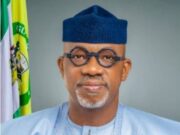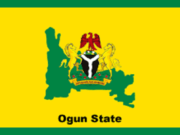The World Bank Group has called on the President Muhammadu Buhari-led Federal Government to impose special taxes on alcohol, cigarettes and sugar-sweetened beverages to improve primary healthcare.
“If we want to improve healthcare in Nigeria, we need to tax the things that are killing us.
“The economic rationale for taxing these products is strong if we want to save lives and make a better and healthier Nigeria,’’ Mr Shubham Chaudhuri, Country Director for Nigeria, World Bank Group, said.
He made the call on Friday in Abuja at a special National Council on Health meeting organised by the Federal Ministry of Health.
Chaudhuri noted that taxes on tobacco, alcohol, and sugar-sweetened beverages would reduce the health risks associated with their consumption and expand fiscal space for universal health coverage post-COVID 19.
The country director stated that investing in stronger health systems for all would contribute to tackling rising poverty and inequality.
He added that health tax increases would have the additional advantage of reducing future healthcare costs by curbing the growth of the non- communicable diseases that tobacco, alcohol, and sugar-sweetened beverages cause.
In his goodwill message to the meeting, Dr Walter Mulombo, WHO’s representative in Nigeria, said he could attest to the enormous health needs of Nigerians and efforts made so far in meeting the needs.
He said his attestation was based on the fact that he had visited half of Nigeria’s 36 states in less than two years in the country.
Mulombo noted that while COVID-19 exposed weaknesses in the global economy including health, he considered it a unique opportunity for a thorough evaluation of existing resources and mechanisms to prepare better for a more resilient future.
He pledged that the WHO would continue to lead technical support for Nigeria in the development and implementation of its home-grown policies and plans.
This, he explained, would be in the context of the global health agenda as reflected in the country’s Cooperation Strategy.
“This we have taken into consideration, even as we currently review our operational plan and budget for the next two years,’’ he said.
Mulombo said the duty of achieving the UN Sustainable Development Goals (SDGs) through building resilient health systems, was a collective responsibility requiring incremental steps in the right direction and continuous improvement.
Credit: thenationonlineng.net






































































